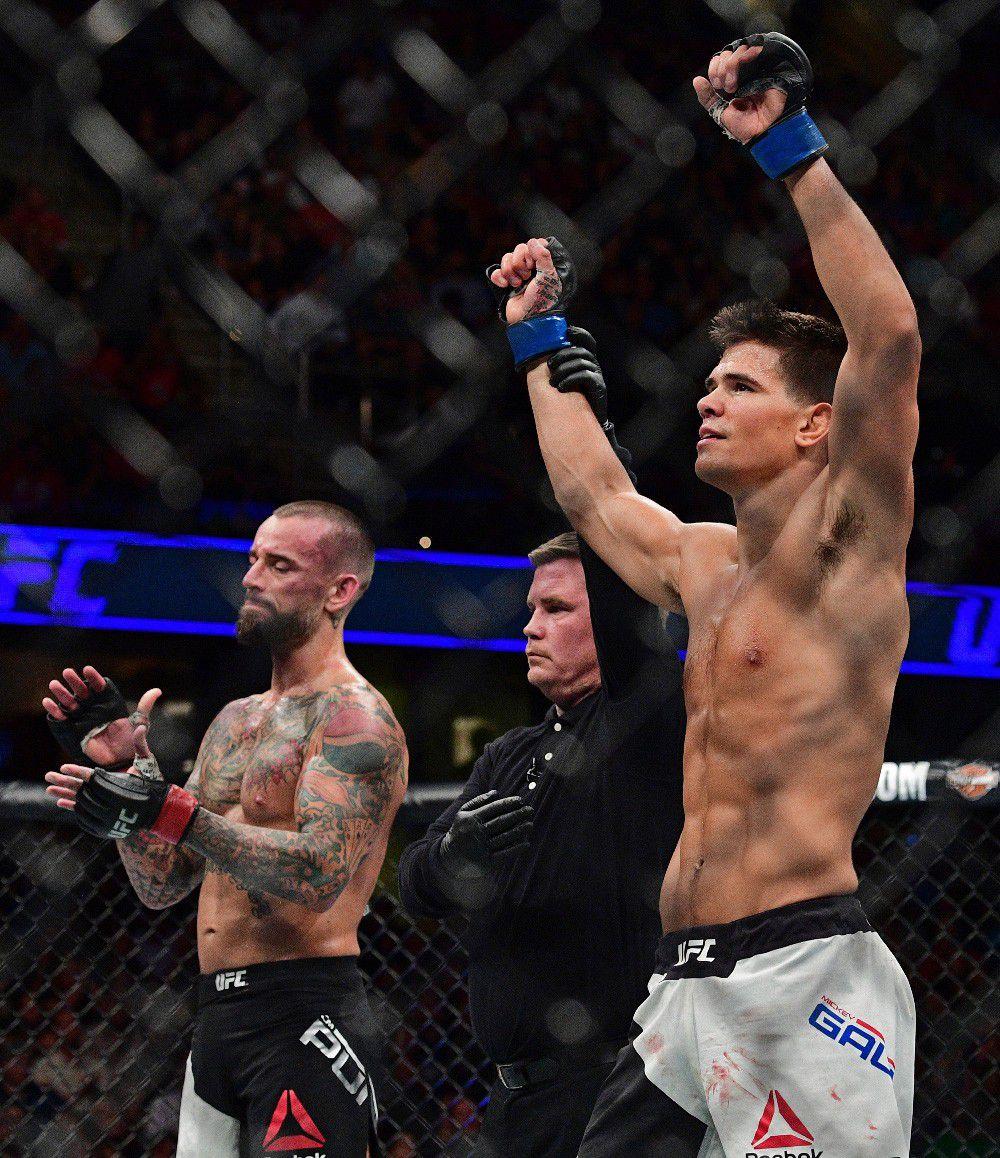When CM Punk’s music, Living Colour’s "Cult of Personality," hit the PA at the Quicken Loans Arena and he began to emerge from the tunnel, there was a moment of exhilaration. The last time he was scheduled to compete in Cleveland, back in January 2014, Punk quit pro wrestling. Bridging the then and now, Saturday night felt as if he had traveled through a portal from a fictitious place into real life, and here he was on the other side. Same venue, different man, trying a different thing entirely — under an illusion of something similar.
It turns out that was the most glorious thing about Punk’s initial foray into the world of cage fighting at UFC 203 — the walk itself. That was the triumphant moment. Shortly after the music stopped, though, so did the curiosity. Punk, still the showman that he was in his previous occupation, took the referee’s signal to "bring it on" to heart. He shot at the young Mickey Gall like he’d been let go from a bowstring that had been pulled back for the past two years, believing that pressure was key to beating him. Going straight at Gall was the game plan, or, to be more accurate, the grand delusion he harnessed through training sessions with his coach, Duke Roufus, since the bout agreement was signed in June.
It didn’t work.

Gall coolly changed levels, took Punk down with a double-leg, and just like that, everything unraveled. Gall easily advanced his position, and then began hammering away at Punk’s head. It was clear how overmatched he was from the first big shots Punk took on his back. He was never going to get back up. There were small traces, unformed little hints, that he might’ve belonged here had he begun earlier in life, rather than shifting careers in his mid-30s. Punk fended off the rear-naked choke for a little bit; he had some basic scaffolding for defense — something boxer James Toney did not during his infamous attempt at MMA at UFC 118, when Randy Couture took the pestle to him — but he simply didn’t have enough. That’s the merciless reality that comes with MMA — the tearing up of scripts, the loss of adventure. He wasn’t going to kick out before the count of three and turn the tables. The 24-year-old Gall, a brown belt in jujitsu, sunk the choke and tapped out Punk at 2:14.
It was ultimately anticlimactic, but only if you believed Punk had a chance to begin with. For those who never thought he did, it was just what it was — a man having his ambitions dictated back to him in a language that he doesn’t fully understand. And of course, when people are paying for the privilege of watching somebody learn such a lesson, it works only once. UFC 203 was a pay-per-view that CM Punk helped sell on intrigue as to how he’d cross over from the world of pro wrestling to the very literal realm of the octagon — the intrigue of whether ANYONE could. The intrigue was gone in five seconds, and for Punk, it’s not coming back. Half the appeal was to see not if, but how Punk would fall on his face. The idea of selling a colossal setup for failure works but once, and the UFC doesn’t back projects of this size. The sport is built around the ready-made, even if the ready-made has only two pro fights under his belt like Gall. CM Punk had crammed for a test, and he didn’t pass it. It was admirable that he tried, and he went about it with the utmost sincerity. It’s just that sort of reality — so blissful and so cruel, simultaneously — that drew the live-for-today atheist Punk in to begin with.
It’s the same reality that spits him out.
If this were a pro wrestling event, Punk-Gall perfectly filled its role on the card, a heartfelt comedy match to change the tempo before the serious fighting resumed. Then Fabricio Werdum and Travis Browne spent three rounds hardly acknowledging each other, until their corner men got into a fight after the match. And Stipe Miocic punched Alistair Overeem so hard he became a conspiracy theorist. But this isn’t pro wrestling — it’s real combat, and it had real stakes. Punk’s loss was more than a story line.
In some ways, Punk got everything he wanted from the experience, even if he left so many others disappointed in what finally emerged from the other end of that tunnel.
Chuck Mindenhall is a senior writer at MMA Fighting.